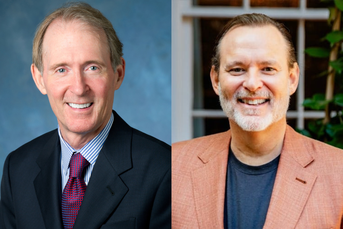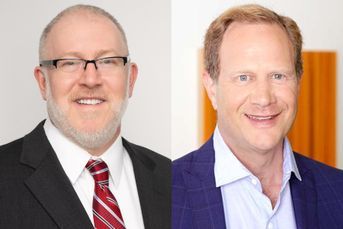Clarence Thomas, Taylor Swift and that gift your client was nice enough to send

Finra's rules on gifts exist as a line in the sand between right and wrong, but advisors should know what is appropriate to give or receive.
How much does the hullabaloo over billionaire Harlan Crow’s lavish gifts to Supreme Court Justice Clarence Thomas mean for financial advisors?
The bidding starts at $100.
Since ProPublica broke the story in early April, Harlan Crow and members of Congress have been battling over whether the real estate magnate needs to divulge details of his gifts to Thomas, including stays at luxury resorts, private jet flights and trips aboard his 162-foot yacht, the Michaela Rose. Crow and his lawyers contend he followed all the pertinent rules.
Thomas, meanwhile, said in a statement that he asked around when he first joined the court and was told that “personal hospitality from close personal friends” was totally permissible and that he need not report it. Still, the Supreme Court Justice claimed it is his “intent” to follow updated gift guidelines in the future so as to avoid any similar compliance kerfuffles.
Politics far, far aside, the whole affair seems awfully unseemly. And even if all the parties involved are telling the truth (let alone the whole truth and nothing but the truth), Crow’s presents to Thomas still created an air of suspicion that led directly down a path of ill will.
Nobody needs that aggravation or such distractions, not at the Supreme Court and not in the wealth management industry.
“The rules are there so there is a line in the sand of what is right and wrong, but the majority of us should have a sense for what is appropriate,” said Debra Brennan Tagg, president of BFS Advisory Group.
That said, Tagg points out that Finra’s guidelines are a little archaic.
“The $100 gift limit has been in place for my whole career and has never adjusted for inflation as far as I know,” she said. “You can hardly buy a client a parking pass to see Taylor Swift, much less a ticket.”
Tagg posits that the idea behind giving gifts to clients is about human nature, thanking the people she does business with and showing her appreciation. Not for what they pay her, to be clear, but for letting her team into “their lives, their hopes, their dreams and letting us guide them.”
“That is a privilege, and not all gifts under $100 can convey how much we appreciate that. We have done some cool things at that price point, but we could do cooler and more meaningful experience-based things with a little more flexibility on the amount we can spend,” said Tagg.
Nina Lloyd, president of Opus Financial Advisors, part of Osaic, says her firm limits the value of gifts received from and given to clients to $100 per calendar year.
“As a young girl, my father stressed the importance of avoiding even the appearance of impropriety. This gifting policy helps financial advisors do just that,” Lloyd said.
Robert Pearl, co-founder and wealth advisor at G&P Financial, holds himself to stricter guidelines than his compliance department recommends.
Absolute zero.
“My clients know that I will not accept gifts from them if the gift has monetary value,” Pearl said.
“The best gifts I ever received from clients are handwritten notes that are typically sent to me after providing a lot of value to the client or after a difficult time in the market. I will always have my memories of all the notes I received during and after the pandemic. Clients were scared in spring of 2020 and I was able to really help a lot of people,” he added.
Brandon Dixon-James, president and wealth manager at Resilient Wealth Management, part of Osaic, not only eschews gifts from clients that may involves a whiff of impropriety, but also turns down offers of business ventures or lending arrangements when they arise, per the Financial Industry Regulatory Authority Inc.’s Rule 3280.
“The repercussions are magnified if the deal goes bad,” Dixon-James said. “Not only is the investment itself on the line but now our business relationship could be at stake, as well as negative publicity. If the opportunity were that great, I would terminate the advisor-client relationship and enter into a partnership relationship.”
BEWARE WHOLESALERS BEARING GIFTS
Clients are different than wholesalers, however. Wholesalers fall into two categories: cold solicitations and strategic partners.
Pearl says some wholesalers who were previously unknown to him — “cold” ones — send him presents in hopes of invoking Robert Cialdini’s “law of reciprocity.” For those unfamiliar with this particular idea, Cialdini’s first principle states that humans are hardwired to want to return favors, pay back debts and to treat others as they have been treated.
In other words, we, as human beings, prefer to say yes. Pearl, however, says “no.”
“I know that wholesalers would hate to hear this, but if you send me a gift in the mail and I don’t have a working relationship with you, I just give it away or throw it in the trash. I don’t even open it, I let someone else open it. I know the law of reciprocity is so strong, they would be influencing me, and I don’t want that clouding my judgement,” he said.
Referrals are welcome though, Pearl said. So if a wholesaler wants to become one of his strategic partners, their company first needs to have one of the best solutions on the market and second needs to be referred and recommended by other advisors in his network.
When it comes to mutual fund and ETF providers bearing gifts, Christian Nwasike, principal at Practice Management Consultants and board chair of the Association of African American Financial Advisors, said regulators created these policies to prevent potential conflicts of interest and to maintain the integrity and independence of advisors’ recommendations.
“In my opinion, it is incumbent upon financial advisors to be well-versed in both regulatory requirements and their firm’s own policies as violations of these rules could result in disciplinary action, including fines, suspension, or even the revocation of their registration,” Nwasike said.
Along similar lines, Sandra Cho, president of Pointwealth Capital Management, says that even though she can accept dinners and small swag items like travel mugs from providers, her general rule is to reject gifts of significant size. In her opinion, it’s just cleaner that way.
“I don’t want to feel like I owe an investment firm,” Cho said. “The only people I owe are my clients. I owe them my unbiased judgement and integrity.”
How advisors can tap into hot ETF trends to build client portfolios
Learn more about reprints and licensing for this article.








